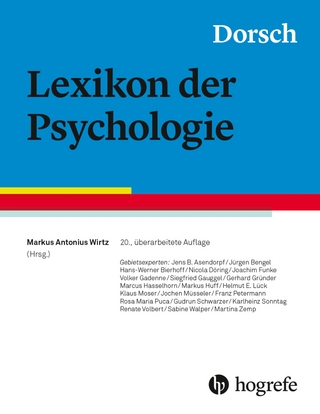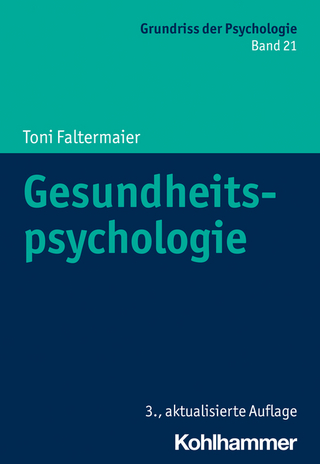
The Good Child
Stanford University Press (Verlag)
978-1-5036-0243-4 (ISBN)
The Good Child examines preschool-aged children in Shanghai, tracing how Chinese socialization beliefs and methods influence their construction of a moral world. Delving into the growing pains of an increasingly competitive and changing educational environment, Xu documents the confusion, struggles, and anxieties of today's parents, educators, and grandparents, as well as the striking creativity of their children in shaping their own moral practices. Her innovative blend of anthropology and psychology reveals the interplay of their dialogues and debates, illuminating how young children's nascent moral dispositions are selected, expressed or repressed, and modulated in daily experiences.
Jing Xu is Affiliate Assistant Professor of Anthropology at the University of Washington and Research Associate of Anthropology at Washington University in St. Louis.
Contents and AbstractsIntroduction: Becoming a Moral Child in China chapter abstractThis chapter presents an overview of the motivation and structure of this book. The chapter introduces the theoretical vision of bridging anthropology and psychology in understanding mind-culture relations, through the important example of early moral development. It then introduces the particular case of China, traces its historical moral education traditions, and links them to the present discussions of "moral crisis" and the one-child policy. It also documents fieldwork settings in Shanghai, and explains the unique methodology of combining ethnographic and experimental methods. It also zooms into the beginning phase of fieldwork––the transitional time when children leave home and start school/collective life––to provide a detailed description of Biyu preschool, and to point to important themes to be explored in the following chapters. Lastly, the chapter summaries the research questions and outlines the content and organization of the following chapters.
1Cultivating Morality: Educational Aspirations and Anxieties chapter abstractThis chapter explores socializers' educational aspirations and anxieties under the one-child policy in an era of "moral crisis," providing an overview of moral education experiences at the Biyu preschool. On the one hand, policy and severe competition in China today have reinforced the culturally ingrained value of educational success, leading to outsize aspirations. On the other hand, parents are burdened with enormous pressure to cultivate a moral child. They believe that early childhood is critical for the child's moral upbringing and they hope to better the future society through moral education. Nonetheless, they perceive that society is not good, especially in the context of Shanghai schools, imprinted with the values of ruthless competition and materialism. This tension results in profound educational dilemmas: disorientation in the face of conflicting values, felt dissonance between ideology and reality, cynicism about moral cultivation, and despair about China's future moral prospects.
2Feeling into Another's Heart: When Empathy Is Endangered chapter abstractThis chapter explores how socialization processes tune and twist young children's nascent propensity to empathize with and care for others in the Chinese context. The education of empathy is situated in broader perceptions about contemporary China as a callous society, as Chinese people's soul-searching after and discussion about the Little Yueyue case demonstrates. These perceptions result in a tension in empathy education, between cultivating emotional sensitivity and directing empathy to others in need, and suppressing empathy in occasions that require vigilance to avoid exploitation. The chapter brings together the ancient Confucian philosophy that features empathy as a fundamental, inborn human virtue and the recent empirical studies on empathy, thus adding a developmental and educational perspective to the emerging literature in anthropology on how empathy is configured and mediated in cultural contexts.
3Negotiating Property Distribution: The Contested Space of Ownership and Fairness chapter abstractIn conversation with the burgeoning research on children's ownership and fairness cognition in developmental psychology, this chapter integrates ethnographic and experimental data to explore children's nuanced motivations, tactics, and notions of ownership and fairness in their property distribution, exchange and disputes. Educators highlight children's natural and genuine disposition toward claiming ownership and fairness. However, in educators' eyes, such natural dispositions are contested and even distorted in the Chinese social environment. The chapter demonstrates how, under such competing concerns and constrains, young children gradually develop more complex ownership notions (such as the first-possessor heuristic and then individual ownership) and fairness rules (such as equality and merit) and how ownership and fairness understandings are intricately intertwined in children's everyday interactions. All these developments are situated in the broader social critique of the traditional value of qian rang (deference, modesty, and generosity) and cynicism about "hypocrisy" in China.
4Sharing Discourse and Practice: The Selfish Child,Generosity and Reciprocity chapter abstractThis chapter explores the world of sharing behavior and probes the discrepancies between socializers' ideology and children's practice. School educators and parents promote an egalitarian norm of sharing—"share with everyone"—in the hope of cultivating altruism and cooperation, values seen as a corrective to Chinese only children's selfishness. By contrast, young children spontaneously engage in strategic sharing, such as identifying good social partners, establishing reciprocal network and pleasing authority. These strategic sharing practices resonate with the adult norm of guanxi (exchange of favors) that is the object of ambivalent attitudes in modern Chinese discourse. Combining ethnographic and experimental data, the chapter analyzes the tension between egalitarian sharing ideology and strategic sharing practice in reference to contrasting psychological dispositions identified in moral development literature, and connects it to the cultural practices of guanxi which are already visible to children early on.
5Disciplining the Little Emperors: Navigating onShifting Grounds chapter abstractThis chapter focuses on guanjiao (literally meaning "govern-educate"), an all-encompassing Chinese concept of child socialization, and the beliefs and practices regarding how parents, grandparents, and teachers educate the "little emperors"—children born under the one-child policy. Instead of treating guanjiao as a monolithic concept that emphasizes obedience and hierarchy, the chapter delves into the tensions in guanjiao beliefs and practices. It argues that middle-class parents in Shanghai today have become more and more critical and self-reflexive in guanjiao. They negotiate diverse and even conflicting values, based on their own perceptions of the past and the present, as well as what they imagine as "Chinese" versus "Western". Such negotiations occur simultaneously at the intrapersonal, interpersonal, and intergenerational levels, as reactions to the increasingly competitive and uncertain society in which they hope their children survive and succeed.
Conclusion: Becoming Human in a Time of Moral Crisis chapter abstractThis concluding chapter provides a summary of the main arguments in this book and articulates its scholarly contribution. The chapter begins with a narrative that weaves together the author's personal reflections on growing up in China and her intellectual pursuit, highlighting the centrality of the Chinese concept "zuo ren." It then summarizes the key findings of previous chapters––dilemmas that complicate the Chinese tradition of moral cultivation, as well as Chinese children's creative agency that manifests itself across moral domains. Then the chapter highlights the significant contribution of this book, that is, it draws on theoretical fertilization and methodological integration to gain a fuller understanding of moral development, foregrounds children as the center of its analysis, and emphasizes the importance of studying children in answering key questions about humanity.
| Erscheinungsdatum | 14.07.2017 |
|---|---|
| Verlagsort | Palo Alto |
| Sprache | englisch |
| Maße | 152 x 229 mm |
| Themenwelt | Geisteswissenschaften ► Psychologie ► Allgemeines / Lexika |
| Geisteswissenschaften ► Psychologie ► Entwicklungspsychologie | |
| Medizin / Pharmazie ► Medizinische Fachgebiete ► Psychiatrie / Psychotherapie | |
| Sozialwissenschaften ► Ethnologie | |
| Sozialwissenschaften ► Pädagogik ► Vorschulpädagogik | |
| Sozialwissenschaften ► Soziologie | |
| ISBN-10 | 1-5036-0243-5 / 1503602435 |
| ISBN-13 | 978-1-5036-0243-4 / 9781503602434 |
| Zustand | Neuware |
| Haben Sie eine Frage zum Produkt? |
aus dem Bereich


